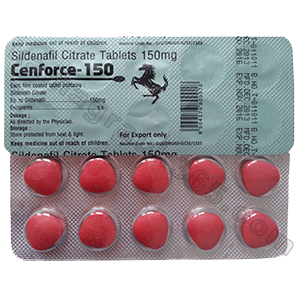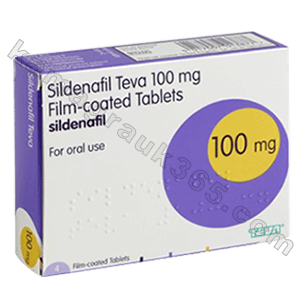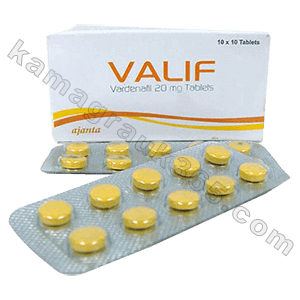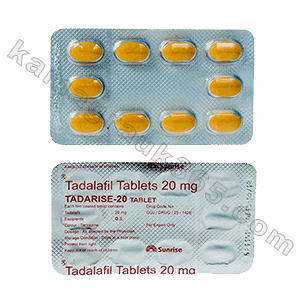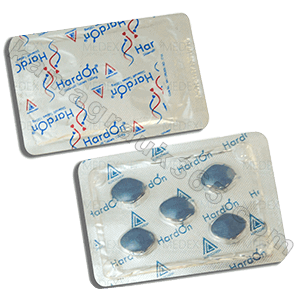Erectile Dysfunction
Erectile dysfunction or ED is the most common sex problem that affects many people approx. 30 million men. ED health condition is the inability of a man to achieve or sustain an erection for sexual intercourse. This sexual disorder is very common among men and it becomes more common as you get older. Almost all men have had trouble in sustaining erection in their life once to achieve or maintain satisfactory sexual performance. But some men find impotence as a long-standing problem.
Erectile Dysfunction Symptoms
The primary symptom of erectile dysfunction is an inability to get or keep an erection to have sex.
While being unable to maintain an erection once may be nothing to worry about, repeated instances can cause havoc on your personal life. The signs and symptoms of erectile dysfunction may differ from person to person. One may be able to sustain an erection for short periods while another man might exhibit a complete inability to sustain an erection while intercourse. Other symptoms that may be related to ED may include premature ejaculation, delayed ejaculation, reduced libido or sex drive, trauma to the pelvis like pelvic fractures, low levels of the hormone testosterone, etc.
What Causes Erectile Dysfunction?
Erectile dysfunction in men can be affected by several issues like the following:
- Limited Blood flow in the genital area
- Stress or emotional reasons
- Or any serious illness such as heart disease, high blood pressure or blood sugar
Physical Causes
It is always worth to consult a physician and ask about persistent erection issues, as it could be caused by a serious medical condition. No matter, you are facing some simple or a serious medical issue, a proper diagnosis can help you to address any underlying medical issues. Here is a list that summarizes many common causes of ED:
- Heart disease and narrowing of blood muscles
- Diabetes
- High Blood Pressure
- Obesity and metabolic syndrome
- High Cholesterol
- Parkinson disease
- Multiple sclerosis
- Hormonal disorders
- Smoking, alcohol or substance abuse
- Surgical Complications
- Injuries in the spinal cord/ pelvic area
- Structural or anatomical disorders of penis and more
Atherosclerosis is another common cause of blood flow problem in arteries of the penis and preventing the required blood flow to the penis to produce an erection. Numerous prescription medicines such as High blood pressure drugs, heart medicines such as Digoxin, drugs that act on the central nervous system, anxiety medicines, antidepressants and more also cause ED issues in men. Therefore, anyone who is taking prescription medicines should consult with their doctors before stopping or changing their medications.
In researches, it has been found that physical causes account for 90% of ED cases, while with psychological issues this is too less.
Psychological Causes
In a few cases, a man may never be able to achieve an erection, this is called primary ED. The reason behind this is almost always psychological and if there is no obvious anatomical deformity or physical issues. Some of the psychological factors behind this are guilt, fear of intimacy, depression and severe anxiety.
In a few cases, a man may never be able to achieve an erection, this is called primary ED. The reason behind this is almost always psychological and if there is no obvious anatomical deformity or physical issues. Some of the psychological factors behind this are guilt, fear of intimacy, depression and severe anxiety.
Diagnosis
Because there may be a different cause of ED, doctors use several tests to diagnose the conditions and find out the cause. Only after the cause of ED is determined it can be diagnosed and cured.
Before ordering any tests, your health expert will ask you for medical history and perform a thorough medical examination. The doctor will also ask you about your personal and sexual history. Even some of these questions may be too personal and may feel intrusive. However, you must listen to every question thoroughly and answer all of them honestly. Some of those questions may include:
What medications are you having in current? This includes prescription drugs, OTC drugs, dietary supplements as well as illegal drugs.
- Have you had any psychological issues such as anxiety, stress or depression?
- When did you first notice your problem while having sex?
- What is the quality, frequency and duration of any erections you have had?
- What were the conditions when you first-time experienced ED?
- Do you have erection issues at night or during the morning?
- Are you having any issues in your current relationship?
The doctor may also ask to interview your sexual partner since your partner may be able to offer more insights about the underlying causes.
After your physical examination and discussion, your doctor may then ask you to do one of the following tests to further diagnose your condition.
Erectile Dysfunction tests
Testing for ED involves a variety of tests to determine if your symptoms are caused by an underlying condition.
Physical exam
A physical examination is performed to check your overall health. Several examinations are done focusing on your genitals to check your ED issues. Keeping in mind your age risk factors, the exams are also performed to focus on your heart and blood system which include, heart, peripheral pulses and blood pressure. A rectal exam to the prostate is also performed if you have any family history. Although, you need not worry about these tests as these are not painful and it's not necessary that you need to go through all these examinations.
Lab Tests
Your health experts may order you blood tests and collect a urine sample to look for health problems that cause ED. Tests can include:
Complete Blood Count (CBC): This is a set of blood tests that, detect the presence of anaemia in your body. Anaemia is caused by a low red blood cell count in your body and can cause fatigue. This can also be a reason for ED in your body.
Liver and kidney function tests: These tests are done to find out whether kidneys and liver are functioning properly or not. Their improper function can also cause you to face ED issues.
Lipid Profile: This blood test is used to identify the level of lipids (fats), like cholesterol. A high level of cholesterol may cause atherosclerosis (hardening of the arteries), that can affect blood circulation in your genital area.
Thyroid test: One of the thyroid hormones function is to regulate sex hormone production and a deficiency in it can cause ED issues.
Blood Hormone: Doctors may ask you to check your testosterone and/or prolactin levels in the blood to see if abnormalities in either of these sex hormones are present.
Urinalysis: A urine analysis provides a wealth of information, including levels of protein, sugar and testosterone in your body. Any abnormality in this report can signify kidney disease, diabetes, or a testosterone deficiency. All these deficiencies may cause you erection problems.
Duplex Ultrasound: This is one of the best ways to evaluate your ED issues. An ultrasound test uses high-frequency sound waves to take pictures of the body's tissues. An ultrasound test evaluates the blood flow and checks for signs of venous leak atherosclerosis (hardening of arteries) or tissue scarring. This test is done in both conditions while the penis is erect and while it is soft.
These tests can help your doctor guide your treatment as well as verifying if an underlying condition may be causing your ED.
Erectile Dysfunction Treatment
The first thing your doctor will do is to make sure you're getting the right treatment for any health conditions which could be causing or worsening your erectile dysfunction.
Depending on the cause and severity of your erectile dysfunction and any underlying health condition, there are various treatment options available that you can have. Before giving you any treatment, your doctor will explain to you about the risks and benefits of each treatment and will also consider your preferences. The choice of your partner also plays a good role in determining your treatment.
Most often, non-invasive treatments are tried at first to treat ED issues. Most of the best-known ED treatments are safe to use and work well on your conditions. Although these medicines have side-effects too in most of the cases, you do not face these issues.
Oral Drugs (PDE5 inhibitors)
Medicines known as PDE type-5 inhibitors are specially formulated to help you increase the blood flow in the penis area. This is the only oral treatment which is approved by food and drug administration for the ED. Some of the famous erectile dysfunction drugs namely are Viagra (sildenafil citrate), Levitra (vardenafil HCl), Cialis (tadalafil) and Stendra (avanafil).
It is advised to consume these medicines before an hour or two of having sex. These PDE5 inhibitors enhance blood flow to the penis and create a harder erection. When men use these drugs as per directions, there are chances that they will have better erections.
Always consult with your doctors before using a PDE 5 inhibitor to know how it will respond to your health. Although, these medicines cause some mild side effects including headache, stuffy nose, facial flushing, muscle aches, and indigestion. But they last just a short time.
In several cases, the side effects caused by these medicines are related to PDE5 inhibitor effects, meaning they help you to increase blood flow to your penis and at the same time affecting other vascular tissues in your body.
Testosterone Therapy
In few cases where a low sex drive and low blood levels of Testosterone are causing you issues in having a firm erection, this therapy may help you to get back to normal erections and more helpful when combined with ED drugs.
Intracavernosal (ICI) and Urethra (IU) Therapies
If oral drugs do not work, then doctors advise for Alprostadil for the treatment of ED. Men suffering from ED can take this medicine in two forms I.e. intracavernosal injection (ICI) or through the urethra (IU therapy).
Surgical Treatment
If medications are not effective in your ED complications, your health expert may suggest you for surgical treatment.
Penile Implants
This surgical process involves placing devices on both sides of the penis. These implants are designed with inflatable or malleable rods. An inflatable device allows you to control and when and how long you will have an erection and the malleable one keeps your penis firm but bendable.
Penis Pumps
A penis pump is also known as a vacuum pump or erection pump is a hollow tube with a hand-powered or battery-powered pump that creates a vacuum that pulls more blood towards the penis. The tube fits over the penis and then the pump is used to remove the air inside the tube and trigger an erection.
If a doctor recommends you for a penis pump, he also makes sure to specify the model to make sure that it meets your needs.
These penis implants are advised in those cases only when other methods have been tried first and they were not successful. As with any surgery, you always have a chance of infection.
Exercise
Modern studies have found that exercise, especially mild to strong aerobic activity is very helpful to cause a healthy erection. A regular mild exercise might also reduce the risk of erectile dysfunction. Always consult with an expert before an exercise plan.
Psychological Counselling
If you are facing ED issues caused by stress, anxiety or depression, regular counselling with your counsellor may also help you.
Herbal Supplements
There are several supplements available in the market that might be a more cost-effective option in comparison to prescription drugs for ED. However, these supplements are not tested and verified for their results.
The Food and Drug administration do not mark these supplements a safe option as they also contain potentially harmful drugs which are not mentioned on the label. The dosage might also be unknown.
Lifestyle Changes
For many people, erectile dysfunction is caused by their lifestyle and daily habits. Here are a few steps that may help you to combat this issue most efficiently.
Quit Smoking: If you smoke, quit. Get help. Try nicotine replacement such as OTC gums or lozenges or ask your doctor if any medicine can help you.
Exercise regularly: Regular exercise is effective in improving your overall health. Exercise helps you in improved blood flow, blood pressure and several health benefits that may drastically reduce the risk of a man having ED.
Reducing stress: If a man is overly stressed, he may have issues in his sexual performance. Stress can be from a myriad of reasons including work, finance, as well as relationship troubles. Finding ways to cope up with these issues can also help you to reduce stress and avoid ED problems.
Eat healthy foods: In a similar way to regular exercise and workout, eating nutritious and healthy food may help you to control and decrease your health issues such as heart diseases, diabetes and clogged arteries, which are known as big risk factors for ED.
Engage in sexual activities frequently: Stimulating sexual activities that lead to even partial erections may have a positive impact on ED. The increased blood flow to the penis may help you to stimulate and improve sexual functions over time.
Coping and support
Whether the cause behind your sexual issues is physical or psychological or a combination of both, erectile dysfunction can become a source of mental and emotional stress for you and your partner as well. Here are some steps you can follow before your visit:
Don't assume it for long-term: An occasional erection cannot be a reflection on your health and masculinity and don't expect that this erection problem will happen again your next during a sexual encounter. This can cause performance anxiety which might make ED problem worse.
Discuss with your sexual partner: Your partner might see your inability to have an erection as a sign of less sexual interest. Your reassurance that it's not the case can help. Discuss with your partner openly and honestly about your issues. Treatment can be more helpful to you if you involve your partner in it.
Make an appointment with your doctor
You might start to see your family doctor. Depending on your health concerns, he might recommend you see a specialist- such as a doctor who specializes in male genital problems or a doctor who is a specialist in the hormonal systems.
Moreover, it's a quite good idea to have some preparations, before you visit your doctor. Following are a few points that can help you to get ready when you meet your doctor.
- When you make the appointment, be sure to ask if there is anything you need to do in advance. For example, your doctor may ask you to not to eat before a blood test.
- Write down all the symptoms that you have had in the past days, including those too which you feel is not related to ED issues.
- Write down vital personal information including any major stress or any recent changes in lifestyle.
- Make a list of all medications, herbal remedies, and vitamin supplements which you take.
- Take your partner along. This can be helpful to remember those points which you have missed or forgot during the doctor's appointment.
In addition to your prepared questions, don't hesitate to ask any additional questions during your appointment.
The End Note
All these erectile dysfunction treatments are used when needed for sex and then wear off. This erectile dysfunction treatment helps you with the symptoms, but not exactly with the underlying issues. Changing the dosage or considering a different way such as emotional/relationship counselling can help you. The one main thing you have to remember is "Never lose the hope."
Add a review
Your email address will not be published. Required fields are marked *




